At 36, Anthony Dirrell accepts he is in the twilight of his career, yet the competitive fire still burns brightly within him.
Having overcome cancer to become a two-time WBC super-middleweight champion, his legacy in the sport has already been secured.
For the last seven years, Dirrell (33-2-2, 24 KOs) has competed in the upper echelons of the 168lbs weight-class, and as a result is financially stable.
With nothing left to prove and free from the burden of having to fight to provide for his family, it may appear that Dirrell is at risk of becoming the latest in a long line of fighters unable to walk away from the sport he has dedicated himself to since the age of nine. However, this is not the case. Having been forced to come to terms with his own mortality at 22, ‘The Dog’ is acutely aware of how precious life is.
His health is of paramount importance and as such, he is conscious of the dangers associated with fighting on too long. At present, he feels he is still able to compete with the best in the division and his motivation for continuing is simple.
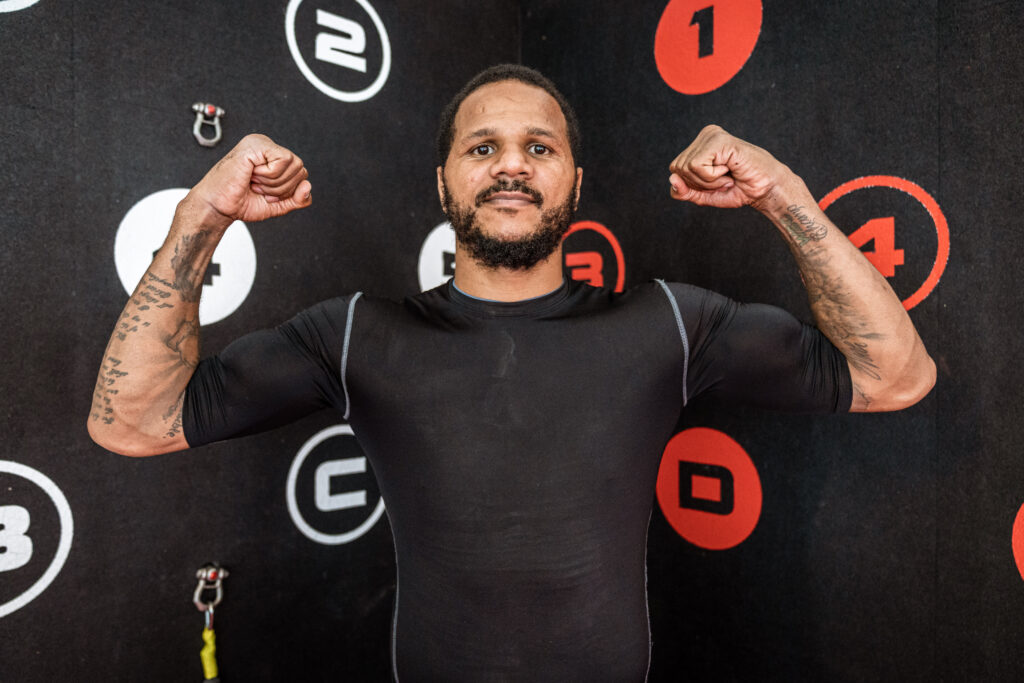
“Just showing people I can still do it and I can still do it,” he told Boxing Social. “I’m not out yet. I’ll know when it’s my time. I talk to my wife after every fight to ask her [and we] sit down and assess my career. We talk and she’ll tell me if it’s one more or a couple more. We sit back and go from there. We follow each other’s direction.”
The latest conversation between Dirrell and his wife, Shondrika, took place in February, following his contentious split draw with Kyrone Davis. Due to the Covid-19 pandemic, the Michigan native had not fought for 17 months – the second longest duration he had spent out of the ring during his 16-year career.
Many fighters complain of ring rust after a long layoff, but Dirrell does not subscribe to this theory. While the almost a year and a half between bouts did not hamper his performance, a pre-fight injury did. The pain in his right hand inhibited him but the 36-year-old is adamant he did enough to be victorious in the contest. Given his conviction in his belief, it would be understandable if he felt aggrieved by the outcome but having been around the sport most of his life, Dirrell is at peace with the decision.
“I thought I won the fight,” he said. “I feel he didn’t do enough. I think I connected with a lot more punches than he did, he was hitting the gloves a lot. Could I have done better? Yeah, but it is what it is, styles make fights. I had a hurt hand in there. I got a cortisone shot a week before the fight, but that’s not an excuse, I took the fight. I still think I did a lot more to win the fight, but that’s how the cookie crumbles, you can’t control [the] things you can’t control. No need to get mad over spilled milk, you got to keep on pushin’.
“My hand was hurt so I couldn’t really display what I wanted to do during the fight. I could punch with it, but I couldn’t punch like I wanted to with it. I felt good. Camp was good, I was in camp for three months. It was just I couldn’t punch with my right hand like I wanted to. I could have got him out of there if I had it, I didn’t. I used what I had while I was in there. It felt good to go 12 rounds like I did, pressing the fight and dictating the pace with that guy.
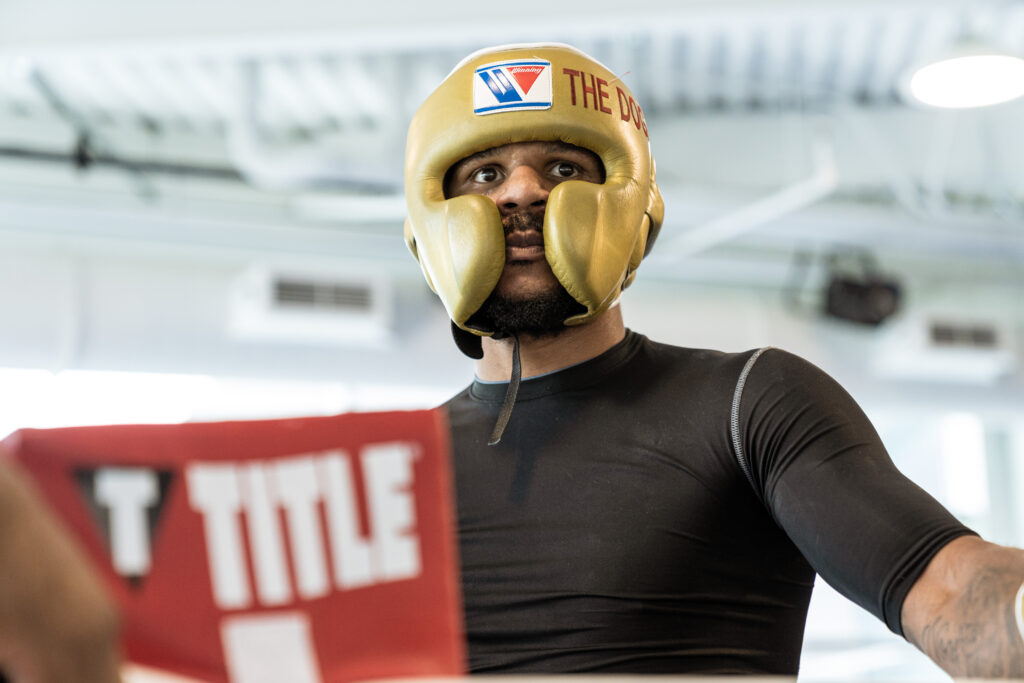
“It’s tough,” he said of ring rust. “But a good fighter will get it back in a couple of rounds. You just need to get in there and get your feet wet. You get it back in a couple of rounds then you come back out and look like yourself. If you are a good fighter, you are going to get that back in a couple of rounds.”
Dirrell refuses to dwell on the outcome of his fight with Davis and believes more can be done to prevent future injustices. Inconsistent judging exasperates fans and fighters alike, but it is an issue almost as old as the sport itself.
Ostensibly, the sanctioning bodies have attempted to rectify the problem over the years by trialling methods such as judges ringside wearing ear-defenders to prevent them being influenced by the reaction of the crowd.
A common suggestion to bring an end to – perceived – poor scorecards is greater training and accountability for judges, despite repeated assurances from sanctioning bodies, such measures never seem to come to fruition.
For Dirrell, the solution is simple: technology. Many other sports have embraced technological advances to ensure the correct decision is reached and the Michigan native sees no reason why boxing should not follow suit.
“They need to have the judges ringside judging the fight, but they need a screen right there just in case the fighter’s back is turned towards the judge, so they can see all the punches that land,” he explained. “I think that needs to happen, we need to make changes in boxing and that’s a change that needs to happen because some judges can’t see, even with glasses they can’t see. I’m not saying get rid of the judges, just get a tablet or something where they can see the fight the whole time.
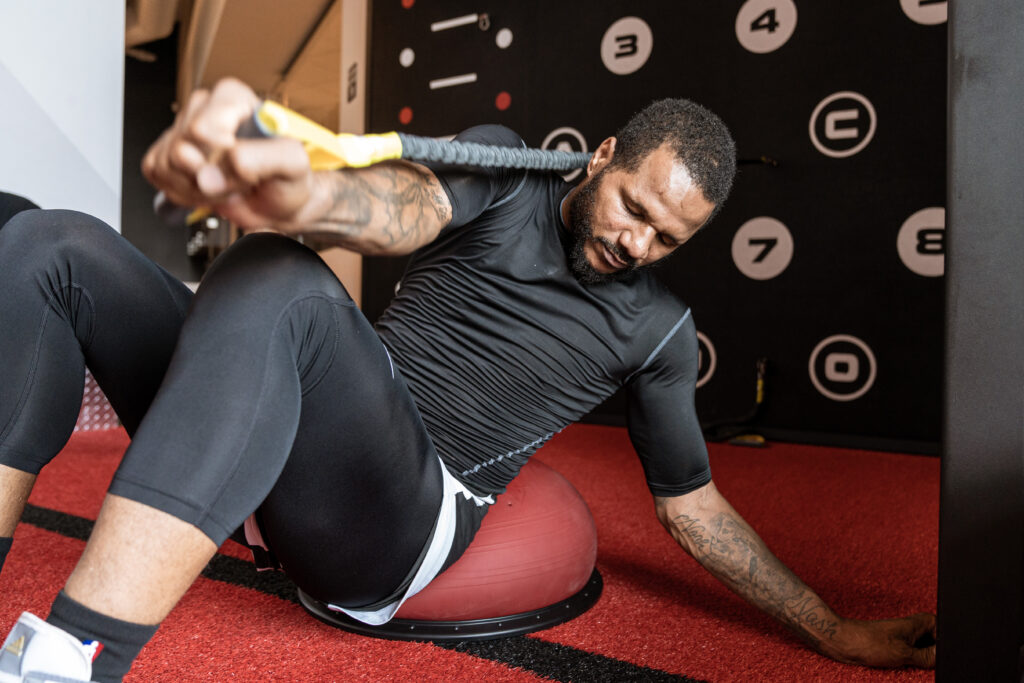
“A fighter gets hit on the glove, that’s not a point. Probably, most judges think that’s a point and it’s not. [Ronald] ‘Winky’ Wright fought with his hands up, coming forward getting hit on the gloves and not taking any punishment to the head. I was aggressive the whole fight and landed more punches. I can’t stop the judges from seeing what they seen because they might have seen something different, with my back turned towards them, me hitting him or him hitting me. It’s why we need to make changes in the sport of boxing. It’s good changes, it’s not bad changes, to have the correct outcome.”
There is no hint of anger or resentment in Dirrell’s voice as he discussed his last bout. It is the level of contentment that only comes with experience. He is eager to move on and focus on the future. With age, comes wisdom, but also an ever-dwindling period of time in which to ascend the summit of the division once more.
That fact is not lost on Dirrell and as a result, he is eager to take on the elite fighters at 168lbs immediately.
“Anybody,” he said of who he would like to face next. “I’m ready to fight. I got a fight under my belt. Coming off this Covid, I think anybody who took a layoff, especially from the Covid, wants to get a fight under their belt. I’ll fight Caleb Plant, I’ll fight Canelo, I’ll fight anybody with a belt just to get back in contention. I’m one of the oldest in the super-middleweight division at the top and I’m looking for a big fight.”
A fight with the first name on Dirrell’s hitlist, IBF ruler Caleb Plant, would make sense for all parties. Both men fight under the Premier Boxing Champions banner and with the division’s two other titlists – Saul ‘Canelo’ Alvarez and Billy Joe Saunders – slated to face each other on May 8, there are few challengers in the super-middleweight division, at present, with a more accomplished résumé than Dirrell.
However, Plant has previously discussed the possibility of biding his time in the hope of securing an undisputed fight with the winner of Canelo and Saunders. If Plant truly harbours ambitions of attempting to become the one ruler of the division, then Dirrell recommends that Plant refrains from facing any credible opposition in the meantime. In January, Plant fought Caleb Truax – a fighter Dirrell halted in the opening frame, five years previous – and turned in an underwhelming performance by his own standards, despite winning by a margin of 120-108 on all three scorecards. On the basis of that showing, Dirrell fancies his chances against ‘Sweethands’.
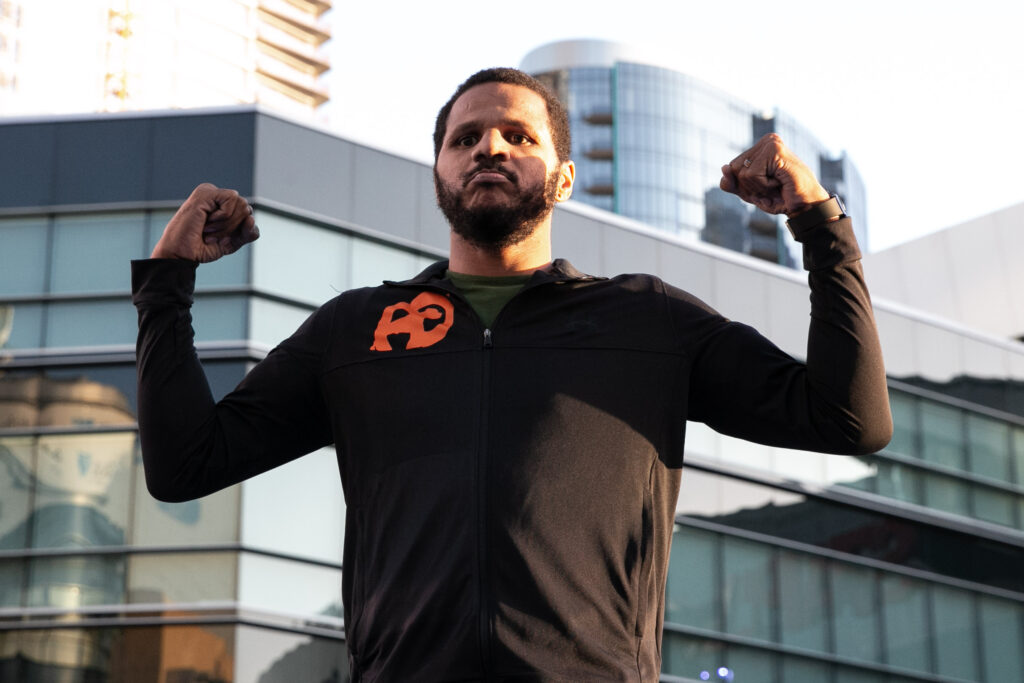
“I just think he didn’t look like [himself],” he said. “I don’t know if it’s because of the layoff, but I don’t think he looked like [himself]. He looked like shit, [if] you ask me, compared to the Caleb Plant that we’ve grown accustomed to. Like I say, styles make fights. He stepped up in competition and he got what he got. He won every round, but he didn’t do it like the Caleb Plant that we are accustomed to. He better sit out because if he fights anyone else of a high calibre, he won’t have that title for long, he knows that.”
Of course, Plant is not the only boxer vying to face Canelo. As one of the biggest names in the sport, the Mexican icon is the most financially lucrative fight available to any fighter between 160lbs and 175lbs. A bout with the WBC and WBA ‘Super’ super-middleweight champion virtually guarantees a career-high purse, a prospect that most in the division would struggle to turn down. Yet, that is exactly what Dirrell did. Last year, he was offered the chance to box Canelo, but ultimately, rejected the terms. It was not a sense of trepidation that made Dirrell turn down the bout, rather he felt he was being given insufficient time to prepare for the contest.
The money would certainly have bolstered the retirement fund, but Dirrell values his wellbeing more than any financial incentives. In the end, Callum Smith fought Canelo on the date Dirrell had been offered. Dirrell believes the Englishman’s lacklustre showing vindicates his decision.
“He wanted me to get ready with five weeks [notice],” he recalled. “I don’t think no fighter on a high calibre stage will even take that fight with five weeks [notice]. Callum Smith did, but I feel he wasn’t ready, as we all seen. I would have fought him, if I’d have had an ample amount of time. You can’t give a fighter five weeks to get ready, especially for an elite fighter like Canelo. You need a full eight weeks and if he gives me that time, I’ll definitely take the fight.
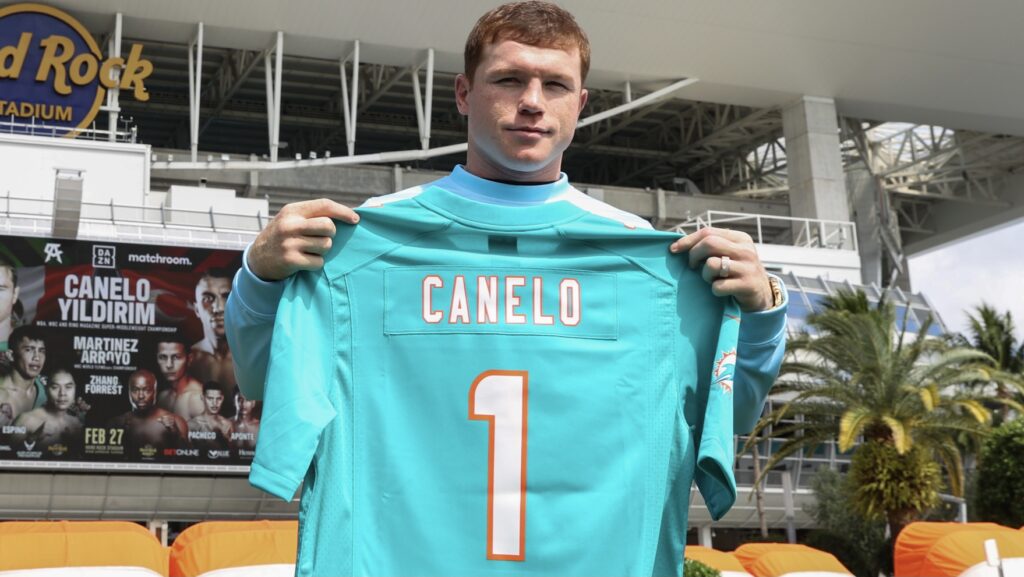
“I’m looking out for my health. Canelo can hit, obviously, we all know that and I’m looking out for me. I need [eight] weeks to get ready, and that’s for anybody. I don’t care of it’s just a low-level fighter, I still need eight weeks to get ready, I still need a full training camp. You give me that and I’ll give you problems.”
Earlier in his career, Dirrell would likely have accepted the offer without a moment’s hesitation. Youth makes young men fearless, that bravery in turn makes them reckless. With maturity comes the stark realisation that they are not infallible.
With a wife and three sons to provide for, they are constantly at the forefront of Dirrell’s mind rather than motivators such as money or legacy. Dirrell hopes that other fighters will heed his advice.
“You have to be smarter,” he said. “Instead of getting hit or taking hits, you got to dodge some of them punches because your brain is not going to take it the way that you took it when you was younger, that’s the main thing. I think everybody needs to protect [themselves] in and out of the ring, but if you get that opportunity with enough time, you take the fight.”
While Dirrell remains fiercely competitive, he knows there are more important things than boxing. It is the perspective gained by experiencing first-hand just how fleeting life can be. In 2006, Dirrell was in his second year as a professional fighter preparing for his 12th bout against James Hopkins.
During camp, something was not right. Dirrell was plagued by persistent chest pains. Ever the fighter, Dirrell proceeded with the bout, stopping his opponent in the first round. In the days that followed, Dirrell consulted his doctor. A series of blood tests resulted in him being diagnosed with Non-Hodgkin’s lymphoma. Dirrell endured a six-hour operation and an eight-month chemotherapy regimen.
Dirrell was understandably overwhelmed, however once he had the opportunity to process the information, he adopted a positive mindset – which he maintains to this day – and was fortunate to have loved ones rally around him in support.
“It hurt,” he said of hearing his diagnosis. “At the time, I didn’t know what cancer meant because nobody in my family really went through it. When I read up, people die of cancer and stuff like that, then it started hitting me and hitting me and hitting me. It was tough but when you’ve got a good foundation of family around you and friends, anything is possible. I kept them around, kept laughing, kept doing my daily routine and I got through it.”
Such experiences leave an indelible mark on people. Dirrell has adopted an entirely new ethos as a result, with a strong focus on health. Recalling those dark days must be acutely painful, but any anguish he feels, Dirrell manages to quash as he openly tells his tale to provide inspiration for others battling the illness.
“It changes tremendously,” he said. “I sit here and watch people smoke and stuff like that and I’m like: ‘Damn.’ If you only knew what I know, then you wouldn’t be doing that. If you’ve been through what I’ve been through, you wouldn’t be doing that. It’s life, you live, and you learn. It’s a very life-changing experience to go through chemo and radiation, especially at a young age. You start to look at things a little bit different, you start to appreciate life a lot more and I do, every day. I live for today; I never live for the future.
“I still tell my story, I still visit cancer hospitals, I still talk to people. I want people to know my story and know what I’ve been through to know there’s still hope, there’s still a chance that you can do what you wanted to do, even though this disease has got you, once you push through it, there’s light at the other side of the tunnel.”
Even if a third world title eludes Dirrell, he is content having defeated an opponent far greater than any he could face in a boxing ring. Not only has Dirrell achieved his childhood ambitions, but he has also long since surpassed them.
Dirrell knows few give him a chance of regaining a world title, but he remains unperturbed, after all, he has overcome bigger odds before.
“In boxing, two-time world champion it really can’t get no better,” he said. “I had a goal when I was younger to be world champion, I succeeded that goal, twice and I had cancer. There’s not many boxers who can say they had cancer, came back and won a world championship, let alone two. I’m just grateful to be in this position, to keep pushing forward, keep boxing. This is me; this is what I know, I am boxing. I’m just grateful to even be in this position.
“Keep following my career, I will be on top again. There’s a lot of doubters out there, but trust me, I’ll be there. If you support me, thank you, I appreciate your support. If you don’t, come on across that bridge, man, it’s wonderful on this side.”
